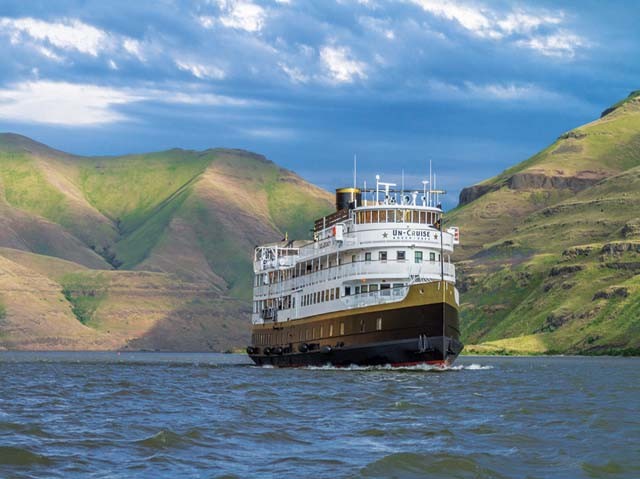Canada has reinforced a ban on cruises for another year through February 2022, dealing one more blow to an industry already reeling from government-ordered shutdowns and new regulations.
The ban has sparked some talk of a possible temporary — though unlikely — exemption to the Passenger Vessel Services Act (PVSA), which has similar requirements to the Jones Act, to allow the huge foreign-flag ships to sail. U.S.-flag tour boat companies and other businesses in states like Alaska count on passengers from those ships which often start cruises in or visit Canada.
One small U.S.-flag operator who will be sailing in Alaska nevertheless called the ban devastating for so many others in the industry who will go another year with no revenue. “It’s a tough, tough situation,” Capt. Dan Blanchard, owner and CEO of overnight cruise operator UnCruise Adventures, Seattle, said Friday, the day after the ban was announced. “I’m a small ship operator that stands to benefit, but this is the worst fricking news we could have.”
The order applies to vessels carrying more than 100 people in Canadian waters and prohibits those with more than 12 people from Arctic coastal waters and the Labrador Coast. Smaller ships certified to carry 100 or fewer people are allowed and must follow local health protocols. Travel on the Great Lakes, one of the fastest growing cruise destinations, also is affected.
Victory Cruise Lines, a Hornblower company, “is aware of the Transport Canada decision, which impacts our Great Lakes season and the debut of the Ocean Victory in Alaska,” American Queen Steamboat Company/Victory Cruise Lines CEO John Waggoner said in a statement. “We continue working with government officials, fellow cruise lines as well as travel partners and look forward to returning to cruising when policies allow.”
“We totally understand what they have done and the reason they have for doing it,” said Stephen Burnett, head of the Great Lakes Cruise Association. “These are challenging times, but we are ready whenever the borders open up.”
The Canadian government said cruise vessels pose a risk to its health care systems, and it will continue to evaluate the situation and make changes as necessary. If the pandemic improves, the order can be rescinded.
Blanchard said he will run six boats, which hold fewer than 100 passengers, in Alaska starting May 16 and expects to have about 5,000 people versus 6,000 in a typical year with an April start. He’ll start at 75% of capacity and then go to 90%. UnCruise is offering special promotions for people booked on other lines that can’t sail.
He also expects a high percentage of passengers to be vaccinated and has several tests available before and on the sailings. “As people get vaccinated, there’s almost an immediate pick up of the phone” to book a cruise, said Blanchard, organizer of the U.S. Overnight Passenger Small-Boat Operators Coalition.
He said an exemption to PVSA would give the larger cruise ships a chance “as long as they pay taxes. We need to get our industry started up.”
Canada’s original ban was scheduled to end this Feb. 28. Operators who don’t comply could face fines of up to $1 million or up to 18 months in prison or both.



.JPG.small.400x400.jpg)

